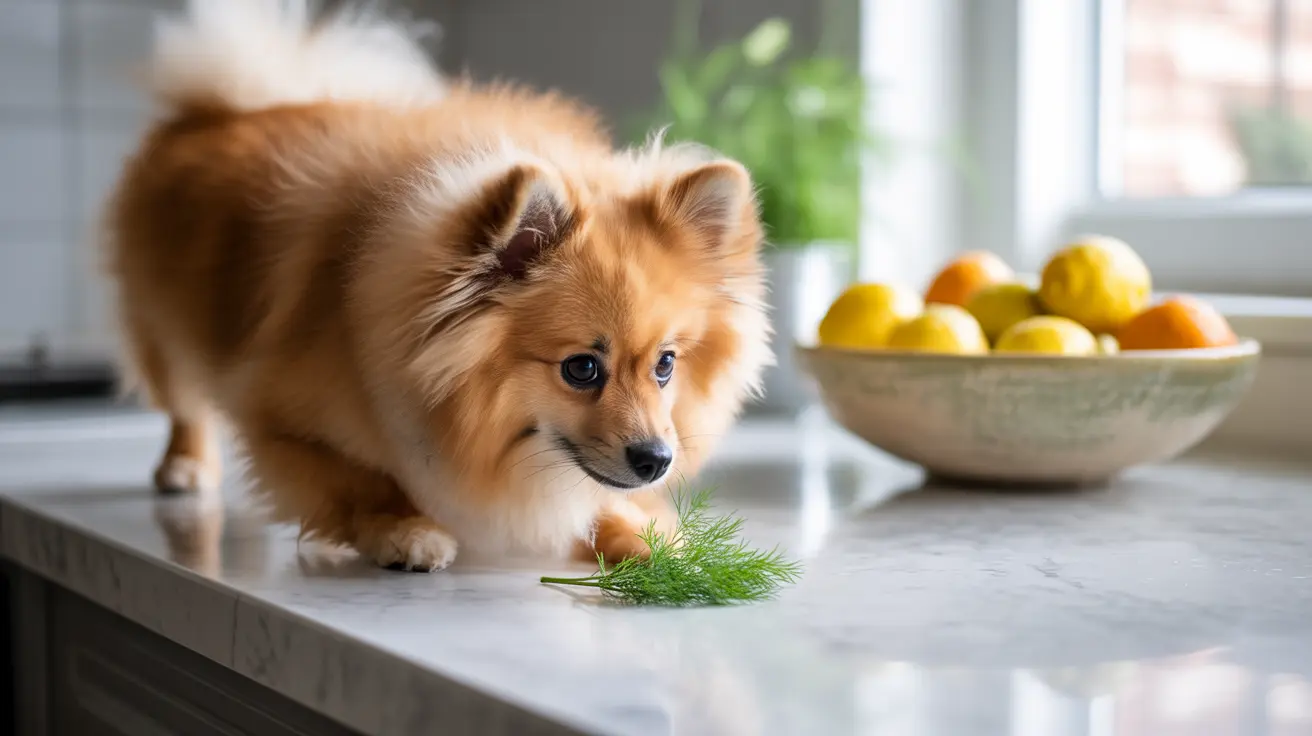Introduction
Many pet owners wonder about the safety of various herbs and seasonings for their four-legged friends. Dill, a fragrant herb commonly used in cooking and pickling, often raises questions about its compatibility with canine diets. This comprehensive guide will explore whether dogs can have dill, its potential benefits, and important safety considerations to keep in mind.
Understanding what herbs are safe for your dog is crucial for their health and wellbeing. While some common kitchen herbs can be dangerous for pets, dill presents some interesting possibilities when used appropriately.
The Safety of Dill for Dogs
Fresh dill is generally safe for dogs when used in moderation. Unlike some other herbs that can be toxic to canines, dill can actually offer several health benefits when properly incorporated into your dog's diet. However, it's essential to distinguish between fresh dill and dill-flavored products, as the latter may contain harmful additives.
The key to safely giving dill to dogs lies in proper portioning and preparation. Most dogs can safely consume about one teaspoon of fresh dill per day, though this amount should be adjusted based on your dog's size and individual needs.
Health Benefits of Dill for Dogs
When properly administered, dill can provide several health advantages for dogs:
- Antioxidant properties that help fight free radicals
- Natural breath freshening effects
- Potential digestive benefits
- Anti-inflammatory properties
- Calcium and other beneficial minerals
These benefits make dill an interesting addition to a dog's diet, though it should always be considered a supplement rather than a dietary staple.
How to Safely Add Dill to Your Dog's Diet
If you're interested in incorporating dill into your dog's diet, follow these guidelines:
- Start with very small amounts to test tolerance
- Use only fresh or dried dill, never essential oils
- Finely chop fresh dill before adding to food
- Monitor your dog for any adverse reactions
- Consult with your veterinarian before making dietary changes
Common Misconceptions About Dill and Dogs
Many pet owners confuse the safety of fresh dill with dill-flavored products like pickles. It's crucial to understand that while fresh dill is safe, dill pickles and other processed products containing dill are not recommended for dogs due to their high sodium content and potentially harmful additives.
Frequently Asked Questions
Can dogs safely eat dill pickles, or are they harmful to dogs?
While fresh dill is safe, dill pickles are harmful to dogs due to their high sodium content, vinegar, and potentially dangerous additives like garlic or onions. Dogs should never be given pickles as treats.
What are the health risks of feeding pickles to dogs, and why is high sodium dangerous for them?
High sodium from pickles can lead to severe health issues in dogs, including excessive thirst, dehydration, sodium poisoning, and potential kidney problems. Dogs are much more sensitive to sodium than humans, making pickles particularly dangerous.
Is fresh dill safe for dogs, and how can I safely add it to my dog's diet?
Yes, fresh dill is safe for dogs when used in moderation. Add small amounts (about 1 teaspoon) of finely chopped fresh dill to your dog's regular food. Always start with tiny amounts to ensure your dog tolerates it well.
What should I do if my dog accidentally eats a pickle or a large amount of pickles?
Monitor your dog for signs of distress such as excessive thirst, vomiting, or diarrhea. If your dog consumes multiple pickles or shows concerning symptoms, contact your veterinarian immediately.
What are the best safe alternatives to pickles for dogs who love crunchy treats?
Fresh cucumber slices, carrots, or apple pieces (without seeds) make excellent crunchy alternatives to pickles. These options provide similar texture without the harmful sodium and additives found in pickles.
Conclusion
Fresh dill can be a safe and beneficial addition to your dog's diet when used properly. While the herb itself offers several health benefits, it's crucial to avoid dill-flavored processed foods like pickles. Always consult with your veterinarian before making any significant changes to your dog's diet, and remember that moderation is key when introducing new foods or herbs to your pet's routine.






